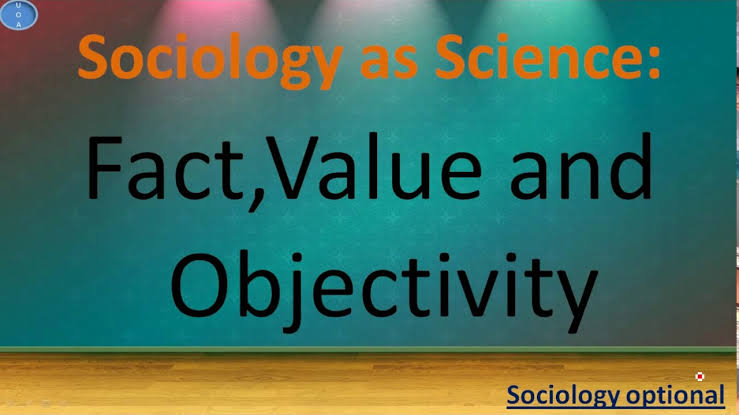W.B.C.S. Examination Notes On – FACT VALUE – Sociology Notes.
Sociology has turned out as a vital part of General Studies paper well as optional paper in Civil Services Mains Examination. Being one of the easiest optional subjects, many aspirants take Sociology yearly as their optional for W.B.C.S. Mains Exam. The syllabus of sociology optional subject for WBCS Mains can be tackled if approached with right strategies.Like, other optional subjects sociology has two papers. Paper I of Sociology deals with the fundamentals of Sociology where Papaer II of Sociology optional deals with the Indian society, its structure, and change.According to Goode and Hatt, fact is ‘an empirically verifiable observation’. Thus, facts are those situations or circumstances concerning which there does not seem to be valid room for disagreement.Continue Reading W.B.C.S. Examination Notes On – FACT VALUE – Sociology Notes.
Characteristics of Facts:
- A fact refers to something actually happened. Example: it is a fact that British left India in August 15 1947.
- It can be subjected to empirical scrutiny:
- Its existence cannot be denied: because it refers to is and not ought or nought smacking of some preferential orientation. (example: man’s desire for power)
- A fact is an objective reality:
Value
Values judgments constitute a large share of social science data. For example the study of socialization is nothing but the study of the gradual acquisition of values by child and the comparative historical surveys measure changes in values within a cultural system.Also Read , Environment Notes On – Ecotone – For W.B.C.S. Examination.
Characteristics:
- Values are Preferences: The central position of value judgments in social sciences lies in the fact that value judgments are merely formalized expressions of sentiments and emotions derived from culture and impelling men to action. Thus a value is a preference, positive or negative.
- Values are in the Ought To form: It follows from the above that values cannot be treated as facts, for they are related to the ‘ought’ and ‘nought’ of things. For example, “all people should take part in the management of public affairs so as to make their democratic system successful”, is a matter of value judgment. A moralist may say that man should always be guided by the idea of ‘good life’; a metaphysicist may say that ‘a man should inform his activity by the principle of self-imposed categorical imperative of duty. A value is an ought-form premise in contrast to an is-form statement. A study of values in all possible forms is called ‘axiology’ wherein focus on epistemological and metaphysical aspects of values is characteristically noticeable.
- Values are not absolute: it could vary from people to people and person to person.
- Values are Relational: when we make a value judgment, we are not saying something about ourselves. The terms which we use to make value judgments, according to this analysis, do not designate any property of the objects of which they are predicted; rather they are actually relational concept; they expose a relationship between the speaker and the objects of which he is speaking.
- Based on Speculation
- Values are all bout Right and Wrong not True or False
Role of Value:
- It is indispensible in human society: Values enter the cultural framework within which all socio-political analysis takes place. And this cultural framework is a necessary condition for social analysis, therefore, cannot be placed in abeyance.
- Helpful for Social Planning and Policy Making
- Values Supplement Facts
- Values guide behavior
Conclusion
As both facts and values stand in a poll opposite, the dichotomy of facts and values cannot be denied. To resolve this dichotomy ‘scientific value relativism’ was developed, in which facts and values should not be studied in absolute sense, rather they should be studied in relative terms. Thus, what we need is not value rejection but value neutralization, a sensitivity to rather than ignoring of values.
Please subscribe here to get all future updates on this post/page/category/website


 +919674493673
+919674493673  mailus@wbcsmadeeasy.in
mailus@wbcsmadeeasy.in







































































































